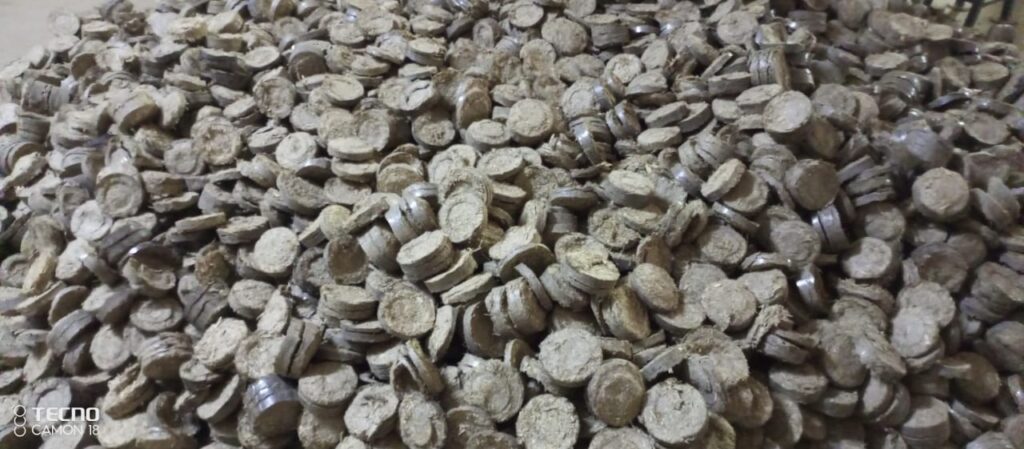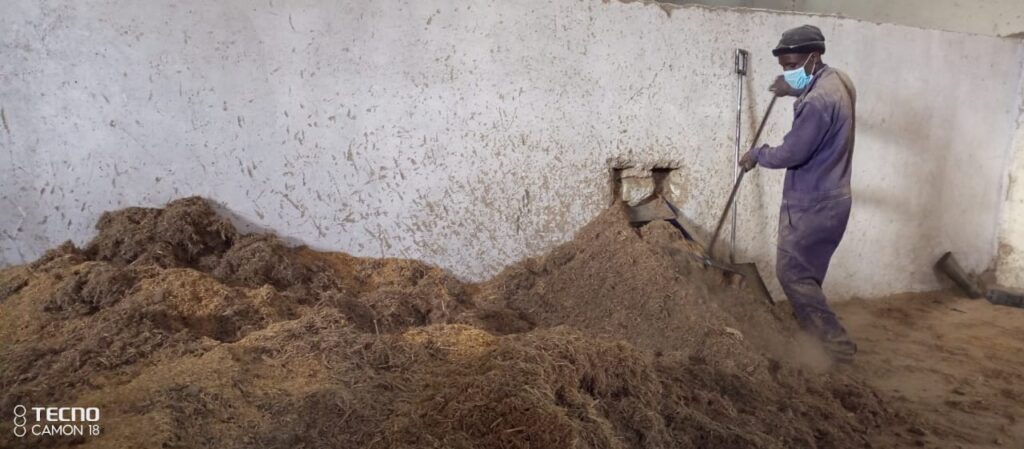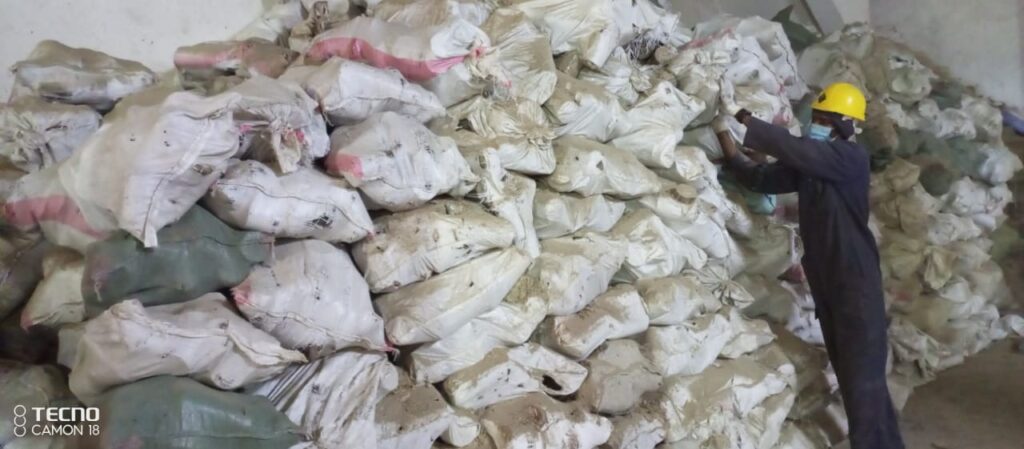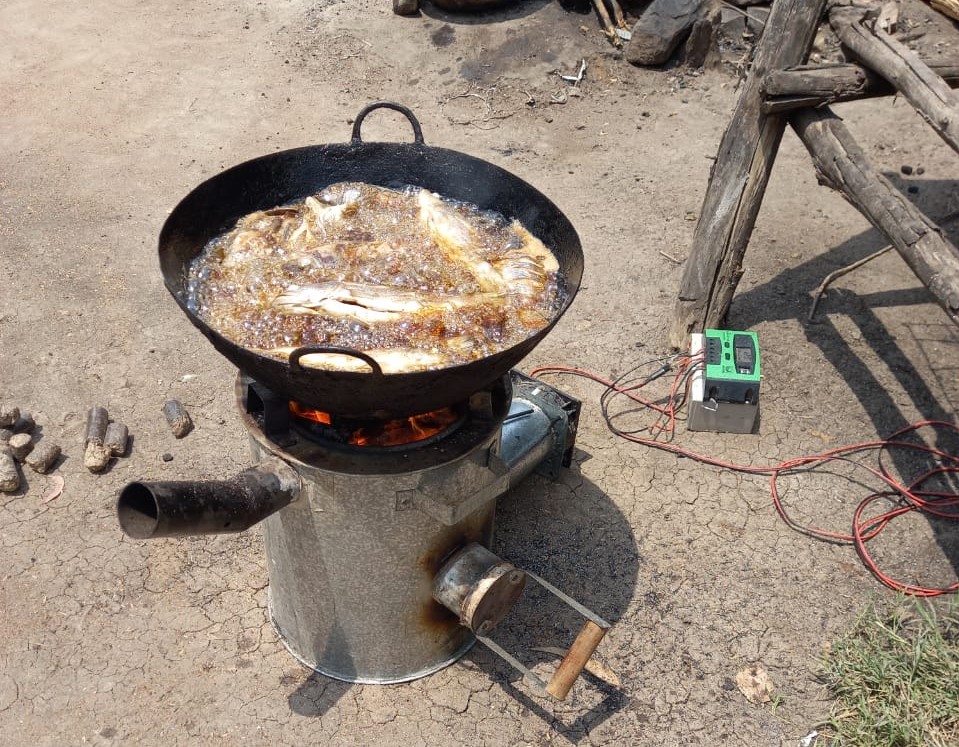Until 2018, Mr Peter Okello was budgeting Sh150, 000 for purchase of charcoal for his Hekima School fuel demand every term.
Then came the cheaper and more efficient bagasse briquette, and he has Sh100, 000 to keep.
Okello, the headteacher of Hekima says he was chatting with a friend who happened to have been facing similar challenges with his.

Scarcity of charcoal
With the government hard on charcoal burning, the cost of the product went up, and many people like Okello who requires the product in bulk had hard time getting it.
“He told me about some alternative fuel called bagasse, and advised me to try it out,” said Okello.
And four years down the line, he is not thinking of going back to charcoal.
Jayne Wadenya, the proprietor of Oak Mart Event Organizers and Corporate Social Events based in Tido, has been using the briquettes for her outside catering business for months now.
With briquettes, I scored huge on hygiene in my work, compared o when I used charcoal
Wadenya
And just like Okello, she admits to save more money in energy, the biggest component of her requirements for a successful event.
“With briquettes, I scored huge on hygiene in my work, compared o when I used charcoal,” she says.

Manufacturing bagasse blocks
Sylvestre Omondi is the Manager of Taamua, a company making bagasse briquette and supplying the locals within Kisumu East.
Located in Kibos, Taamua is able to easily access bagasse from Kibos Sugar Factory.
Bagasse is dried waste from crashed sugarcane during the processing of sugar.
The bagasse is then sun-dried for three days before being fed on the briquetting machine and churned out into blocks.
OMONDI: We have to regulate production so as to achieve a tangible profit margin
Omondi
According to Mr Omondi, the bagasse briquettes and pellets have a high calorific value (they burn for long), low ash content, low moisture, zero emissions and has a positive environmental impact.
“Each block is designed to cater for client specific needs,” he said.

Main clients
Tea factories, prisons, schools, health institutions which are the largest consumers of the briquettes demands larger sizes compared to domestic consumers who require small pellets.
Although the business has fairly established itself in the market, Mr Omondi admits that the main challenge it faces is the high cost of electricity that hampers production.
“We have to regulate production so as to achieve a tangible profit margin,” he added.
The company is looking for alternative ways to complement energy by investing in solar panels in the future.
His other concerns include high taxes by the national and county government which pushes the cost of production above the roofs, difficulty in sourcing for raw materials during low seasons, and poor infrastructure which hampers transportation of the bulky raw material.
Apart from importing of briquetting machine spare parts from abroad which has become costly, unpredictable weather patterns and low sensitization among the public on the importance of the alternative fuel have also become major challenges.

Wood fuel
Kenya, with a population of over 50 million people, is the fifth largest economy in Africa.
Significantly, wood holds a large share of the country energy demand, supplying more than 90 per cent of rural household needs.
Continuous usage of charcoal has led to diminishing of forests as demand for the commodity is all time high.
At Taamua company limited, the commercialization of bagasse, a waste product from sugar cane is making briquettes that provides cooking energy and reducing over reliance of wood fuel.
With such interventions, 1.1 million acres of forest land will be saved and a solution to promote clean energy and reduce over reliance of wood fuel.
Switching to sugarcane briquettes from rural to urban households will take tremendous pressure off forest while improving human health and combating climate change.
